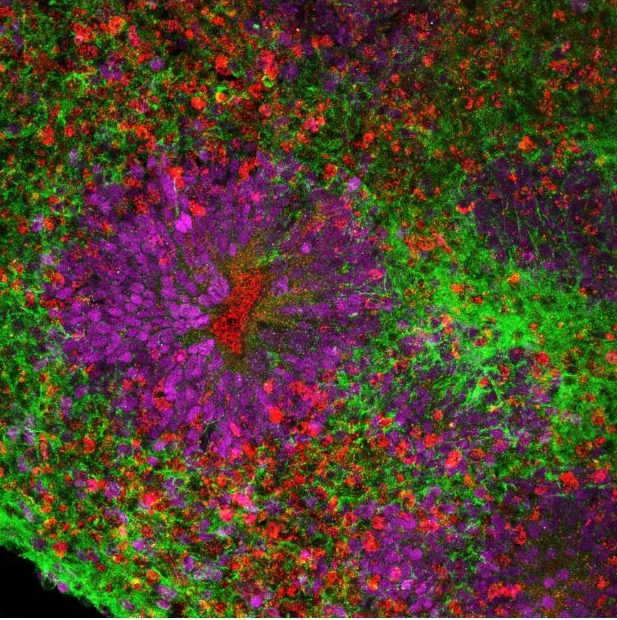Modelling disease in vitro by engineering human brain organoids
Human in vitro models are crucial to fill the gap between animal models and patients in the process of drug and therapy development. Our research holds the potential to develop in vitro models based on human artificial tissues for screening therapies and for the investigation of relevant molecular and biological mechanisms in a high-throughput fashion.
Given the very high efficiency in cell fate conversion using our reprogramming system, starting from few thousands patient’s cells we can reprogram them to their pluripotent state, and then program them towards a variety of disease-affected cell types, such as neurons, or directly into 3D brain organoids in a smooth and seamless process, providing in vitro models able to recapitulate the very early and inaccessible stages of human brain development. This system allows the generation of clonal brain organoids, starting from single naive or primed iPSCs, able to capture the variety of genetic and epigenetic alterations in neurodevelopmental disorders such as Fragile X syndrome.

